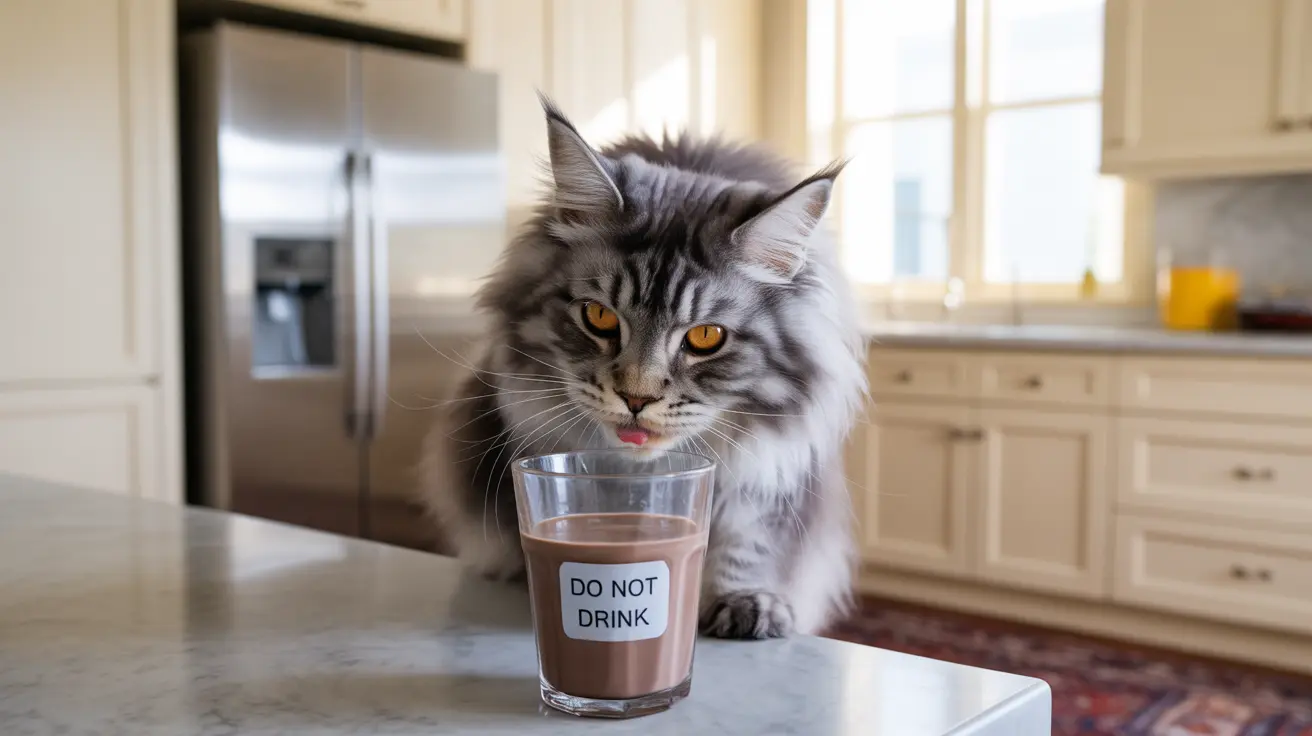The Double Danger: Chocolate and Dairy
Chocolate milk presents two significant hazards for cats: the toxic compounds in chocolate and the lactose in milk. Both ingredients can cause severe health issues in felines, making this beverage particularly dangerous for your pet.
The Chocolate Toxicity Risk
Chocolate contains theobromine and caffeine, both methylxanthines that are toxic to cats. Even the small amount of chocolate in chocolate milk can be harmful. While chocolate milk contains less concentrated chocolate than solid chocolate, regular consumption can lead to dangerous accumulation of these toxic compounds in your cat's system.
The Lactose Problem
Adult cats are typically lactose intolerant because they lose the ability to produce lactase, the enzyme that breaks down milk sugar, after weaning. When cats consume milk products, including chocolate milk, they often experience uncomfortable digestive issues such as:
- Diarrhea
- Vomiting
- Stomach upset
- Abdominal pain
- Gas and bloating
Immediate Health Risks and Symptoms
If your cat consumes chocolate milk, they may show various symptoms within hours of ingestion. Watch for:
- Increased thirst
- Restlessness or hyperactivity
- Rapid breathing
- Elevated heart rate
- Tremors or muscle twitching
- Lethargy
- Loss of appetite
Long-term Health Concerns
Regular exposure to chocolate milk can lead to several chronic health issues in cats:
- Obesity from excess sugar and fat
- Diabetes
- Dental problems
- Chronic digestive issues
- Potential organ damage
- Nutritional imbalances
Safe Alternatives for Cats
Instead of chocolate milk, consider these safe alternatives for your cat:
- Fresh, clean water (always the best choice)
- Commercial cat milk replacers (specially formulated to be lactose-free)
- Small amounts of plain, low-fat yogurt (if tolerated)
- Bone broth (unseasoned and without onions or garlic)
Frequently Asked Questions
Can cats safely drink chocolate milk, or is it toxic to them?
No, cats cannot safely drink chocolate milk. It contains both chocolate, which is toxic to cats, and lactose, which most adult cats cannot properly digest.
What symptoms should I watch for if my cat accidentally drinks chocolate milk?
Watch for vomiting, diarrhea, increased thirst, hyperactivity, elevated heart rate, and unusual lethargy. If you notice any of these symptoms, contact your veterinarian immediately.
Why are most adult cats lactose intolerant and what problems does milk cause them?
Adult cats lose the ability to produce lactase, the enzyme that breaks down lactose in milk. This leads to digestive issues including diarrhea, vomiting, and stomach upset when they consume dairy products.
What should I do if my cat consumes chocolate milk or chocolate products?
Contact your veterinarian immediately. Note the amount consumed and when it happened. Monitor your cat closely for symptoms and follow your vet's guidance for treatment.
Are there safe milk alternatives I can give my cat instead of chocolate milk?
Yes, you can offer specially formulated cat milk replacers that are lactose-free. However, clean, fresh water is always the best drink for cats. Any treats should be given in moderation and with veterinary approval.
Remember, while it might be tempting to share your chocolate milk with your cat, it's best to stick to pet-appropriate treats and fresh water to keep your feline friend healthy and happy.






